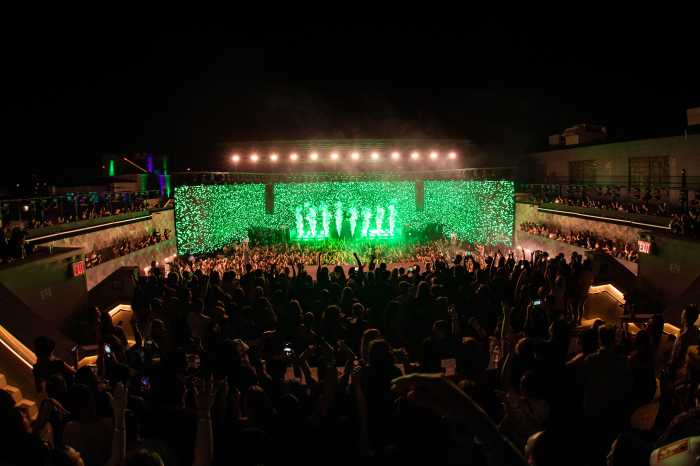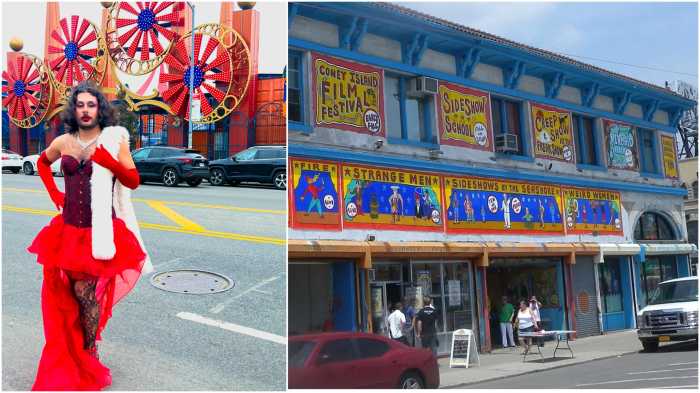When I heard that the exceedingly hip and energetic One World Symphony would be launching their new season with a program called “An Italian Summer,” my scholarly, erudite reaction was, “Huh?”
In the conservatory where I studied, we were taught that playing this sort of thing in September was the baroque equivalent of wearing white shoes after Labor Day — it simply was not done. (Actually, beyond any fashion faux pas, I was afraid that all this warm-weather music might be some kind of metaphor for global warming. Apparently, I am a victim of my times.)
“We thought it would be a great idea to extend the summer experience with a different take on the nostalgia that an Indian summer evokes,” explained Sung Jin Hong, One World’s charismatic and poetic artistic director. “Our ‘Italian Summer’ program conjures feelings and images of butterflies on a passionate fling, or the raucous debauchery of a night at Bohemian Hall.”
Well alright, then.
The program begins with Respighi’s “Pines of Rome” (1924), which is basically four postcards from the city that brought us “La Dolce Vita.” A travelogue of sorts, kind of like when Duke did “Harlem” (or the Stooges did “LA Blues”). This is slightly less groovy than “Harlem” (and a lot more listenable than the Stooges’ tune), but still easy enough to parse that even Ramones fans should be able to sort it out.
Ditto Vivaldi’s “Summer” from “The Four Seasons” (1723). For classical music neophytes especially, this is a helluva place to start. One nice thing about it (besides the fact that, despite its widespread popularity at brunches and PBS pledge drives, it is actually really good) is that it comes with an instruction manual, what they call “extra-musical” or “program” material — in this case a sonnet that you can follow along to, from the idyll breezes of the first movement, right through to the “thunders and roar” of the final “presto” section.
And get ready for a real blast, because, as maestro Hong explained, his orchestra is going to veer away from “the early music performance practice of the 18th century,” which entailed performing “with less vibrato and less musicians; with transparent lines; quick, athletic tempi; and crisp articulation.” Rather, Hong’s army of musicians will be championing “the modern traditional style” when they attack the Vivaldi, meaning that they’ll “perform with unrestrained vibrato — a lush, full-bodied sound and with the full strength of our string players — which number 30 plus.”
Anyone who thought that their Polyphonic Spree records sounded big is going to have their knickers blown off by this group.
The real bang on this bill, however, is Mascagni’s “Cavalleria Rusticana,” a one-act “verismo” that shook the opera world when it debuted in 1890. It’s got enough fireworks and confrontation (not to mention the famous, fantastically passionate intermezzo) to satisfy even the most jaded New Jersey wiseguy.
This is just the first evening of One World Symphony’s season, temptingly titled “Obsession/Possession.”
“I think many New Yorkers can relate, as many of us have some sort of an obsessive nature,” Hong shrewdly observed. “Is it our city that brings out our compulsive tendencies, or vice-versa?”
One World Symphony performs “Italian Summer” at 8 pm on Sept. 5 at St. Ann and the Holy Trinity church, 157 Montague St. at Clinton Street in Brooklyn Heights. Tickets are $40, $30 for seniors and students. For more information, call (718) 462-7270, or visit www.oneworldsymphony.org.
Mike Edison is the author of “I Have Fun Everywhere I Go: Savage Tales of Pot, Porn, Punk Rock, Pro Wrestling, Talking Apes, Evil Bosses, Dirty Blues, American Heroes, and the Most Notorious Magazines in the World” (Faber and Faber). He is, for now, turning his back on a life of sin to write about classical music.

























